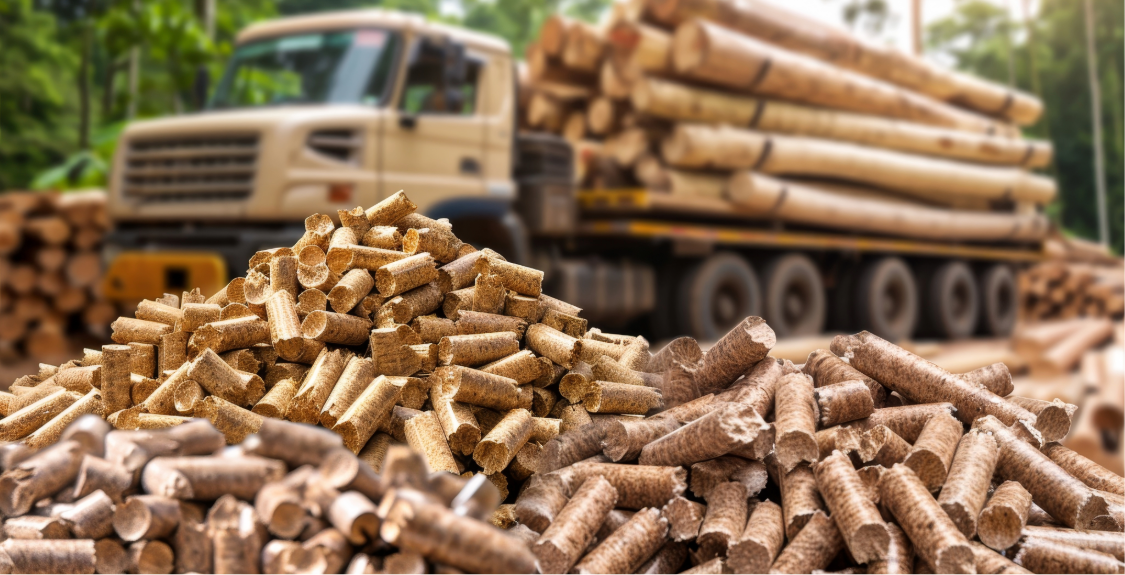AFM NEWS
Navigating Change in South Carolina's Forestry Industry

The forestry sector in South Carolina has experienced significant challenges due to recent mill closures and reduced timber consumption. Although these setbacks are widely felt and are reverberating statewide, industry experts are meeting with legislators and other stakeholders to help the industry pivot and remain profitable for years to come.
In 2023, several South Carolina mills closed or converted their operations. After 115 years of operation, Pactiv Evergreen in Canton, North Carolina, shuttered its doors in March 2023, and this paper mill sourced a substantial portion of its fiber from South Carolina forests. In May 2023, WestRock closed its Charleston paper mill, which had been a significant consumer of pulpwood in the region. By fall 2024, International Paper’s Georgetown mill announced plans to close, contributing to a projected loss of 8.2 million tons of wood markets, which is approximately 25% of South Carolina’s peak timber product output. Lastly, in early 2023, Sonoco’s paper mill in Hartsville, South Carolina, transitioned to using 100% recycled fiber, reducing the demand for fresh pulpwood. The culmination of these closures and operational changes has led to a significant reduction in timber consumption, highlighting the need for strategic initiatives to support landowners and the wood supply chain.
In an effort to address this growing concern, the Forestry Association of South Carolina and the South Carolina Forestry Commission formed a task force in conjunction with industry leaders to help identify potential solutions. Collectively, the group has worked to recruit new industries to the state, including emerging technologies, to mitigate some of the losses felt by mill closures and conversions. Although there are no immediate plans, there are two essential solutions on the table for discussion: increasing the amount of wood going out of the port of Charleston and exploring viable alternative energy solutions like biochar and Sustainable Aviation Fuel (SAF).
Currently, the Port of Charleston is primarily a container port, moving products through small containers that are not conducive for transporting bulk forest products. Legislators and industry leaders are applying pressure on the Port Authority to locate a new site for bulk loading and shipping. Bulk shipping is an efficient barge-like vessel that backs up to a port terminal and allows bulk forest products to be shipped with ease. Demand for wood chips and wood pellets is high in Europe and Asia, primarily driven by their use as a renewable energy source and in industrial applications. As European countries phase out coal power plants and transition to biomass, strict environmental regulations and sustainable forestry practices have reduced large-scale logging, and their reliance on imported biomass has increased. If the Port Authority accommodates the request for a new bulk loading and shipping facility, this solution will have immediate, meaningful impacts on SC’s forestry industry.
Although these efforts take significant investments and pivot from more traditional pulpwood uses, SAF and biochar are considered renewable resources worth exploring. Boeing broke ground on a final assembly and delivery location for the 787 Dreamliner in North Charleston, SC, fifteen years ago. In January 2025, Boeing partnered with Norsk e-Fuel, a European company that is driving the transition to renewable fuel. As such, some hope that the manufacturer may be willing to invest further in SAF in SC. SAF is a biofuel designed to replace or supplement traditional jet fuel (Jet-A, Jet-A1), reducing greenhouse gas emissions and dependence on fossil fuels. It can be made from various renewable feedstocks and can be blended with conventional jet fuel without requiring modifications to aircraft engines or fueling infrastructure. Although SAF can be generated from multiple renewable feedstocks, residues most relevant to agriculture and forestry include corn stover, wood chips, sawdust, and logging residues. Currently, production costs are high, and production capacity is limited; however, airlines are investing to meet net-zero goals by 2050.
Biochar, on the other hand, is a type of charcoal produced by heating organic material, such as wood, in a low-oxygen environment—a process called pyrolysis. This process prevents complete combustion, leaving behind a carbon-rich substance that has several environmental and agricultural benefits, including soil improvement, water retention, and carbon sequestration. It can be used to amend soil and enhance fertility, help rehabilitate degraded forest lands, and more. While biochar is produced in regions worldwide, the Port-Cartier facility in Quebec, Canada, represents North America's largest biochar plant. Two companies are recognized for their contributions to the US biochar industry: Biochar Now, based in Colorado, and Pacific Biochar in California. While the biochar industry isn’t new, it is still an emerging sector with several notable barriers, including high initial capital costs, competing uses for biomass, and regulatory or environmental permitting. Nevertheless, growing interest in carbon sequestration and sustainable materials is fueling investment and new technologies, coupled with government support, could scale up production and make biochar more mainstream.
While some uncertainties lie ahead in the SC forestry industry, there are some meaningful opportunities to evolve. Whether investments are made in exports to Europe or new technologies are explored through SAF and biochar, the industry will continue to provide economic development and access to products that Americans and global citizens have come to rely on. Collaboration with industry leaders, forestry commissions, and legislators can yield impactful results that allow forestry to flourish in SC for generations to come.
